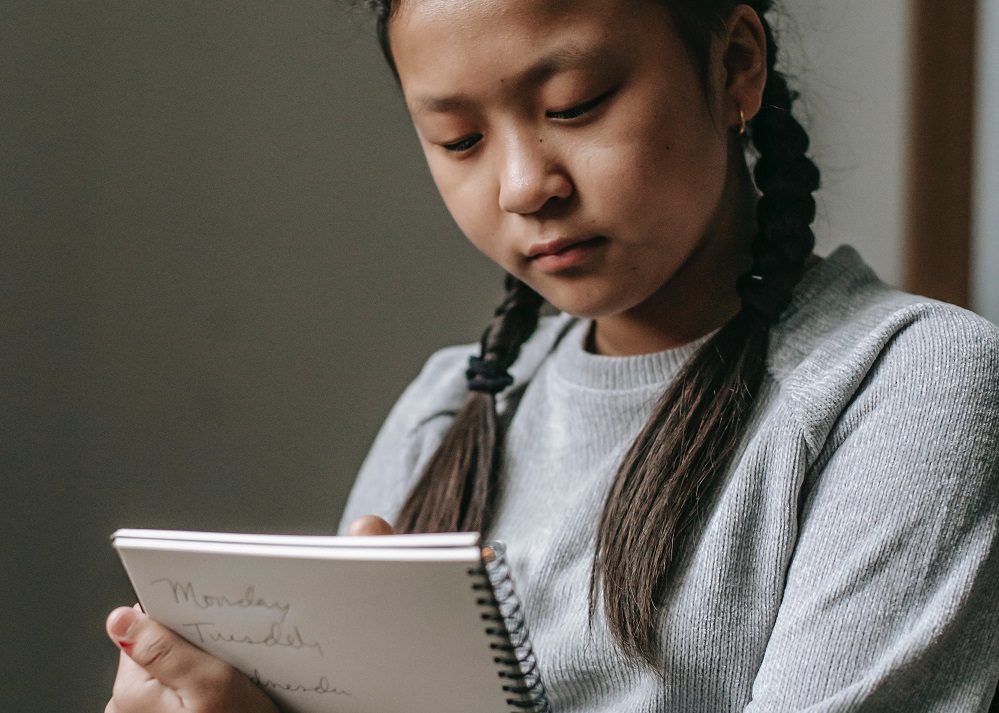Protecting Mental Wellbeing

New lockdown rules have just been announced for England and Scotland.
For many pupils, though learning online and remotely is a reality they are prepared to face (with online tutoring available from tutors; remote learning processes now more well practised, following 2020’s lockdowns; and technology on hand to help), the uncertainty of so much change poses a real threat to their mental wellbeing.
Keeping on top of schoolwork from a distance isn’t only an academic hurdle – but an emotional one, too.
Ensuring that there are mechanisms in place to manage anxiety, and that coping strategies are being developed and strengthened during this tumultuous time, could help many students achieve success despite the challenges that are ahead (and indeed could prove valuable throughout their lifetimes, pandemic or no pandemic!).
Here are some strategies to help you cope with uncertainty and rapid change.
Coping with Uncertainty, Technique #1: Stay Present
One of the key stimuli for anxiety is a sense of being totally overwhelmed; and, after a year of continual change due to the coronavirus crisis, the tendency to panic about what comes next (and how long it might take to get back to ‘normal’) is quite understandable. However, it’s imperative to try to simply take things one step at a time. Focus on the here and now, and break things down into manageable chunks: what are you doing for the next hour? Or even the next ten minutes? Concentrate on powering through those ten minutes, and then you can worry about the rest.
If you feel your mind drifting, acknowledge the thoughts, and then try to put them away and bring the mind back to the present. Putting your phone down and breathing deeply can be very helpful in such situations.
Arm Yourself with Knowledge…
‘Fake news’ might be a term that’s more commonly associated with Donald Trump than the coronavirus, but misleading reports (particularly on social media) have played a large role in the rise of pandemic-related anxiety. Avoid these at all costs. Instead, trust the experts: keep on top of the latest (approved) news by visiting verified sources only, such as Gov.Uk or the NHS coronavirus page.
…But Don’t Obsess
As mentioned above, staying up to date can help you develop a sense of control – but there are healthy limits. Exceeding those could lead to you becoming overwhelmed or fixated on the latest updates.
With this in mind, it’s helpful to restrict the amount of time that you spend watching or reading the news – set yourself some goals and try to stick to these each day. If you’re finding it hard to stop reading or watching, plan some other activities that will distract you and give your mind a break: you could go for a walk with a friend, watch a boxset, or try out a new recipe in the kitchen.
Find the Fun (Amidst Uncertainty!)
Finding activities to take your mind off things – like the examples mentioned above – is a great idea. Try not to focus on what we can’t do (though that feels like a lot!) and instead get creative about finding things that you enjoy that you can plan in and look forward to during lockdown. What about joining a group messaging platform, like Houseparty, or setting up some Zoom calls with all your friends? Or how about raising endorphins with a free fitness class on YouTube (you can find everything from yoga to dance to high-intensity interval training [HIIT])? You could even use lockdown to learn a new language, instrument, or even a new subject (the Open University is offering a whole range of courses for free!).
If nothing else appeals, find ten minutes a day to try some meditation. Popular apps like Calm or Headspace offer plenty of free, accessible guided meditations to help you get started. You don’t need to be an expert: willingness to try is all that is required, and results are guaranteed. You might not love every minute of it, but you will feel better afterwards – calmer, perhaps, more focused, or even with more energy, depending on which meditation you try.
And Finally… Stick to a Routine
Staying present as much as possible can be extremely helpful in coping with anxiety; and one of the most effective ways to stay rooted in the ‘here and now’ is to create a routine. Routines not only help us to feel in control – very useful when dealing with uncertainty and change – but also provide a sense of security.
Being asked to stay home for a period of time can feel daunting – but it’s also an opportunity to change the way that you live and enjoy more flexibility. In fact, it can almost be viewed as a strange sort of ‘freedom’! Spend some time thinking about what you might want to do during this period; how you will ensure that you’re building in enough time for sleep, eating properly, staying hydrated, socialising with friends (albeit virtually), etc. Ensure that you’re creating enough space in your routine for ‘self care’ and activities that make you feel calm and rooted. Having a plan will make the time ahead feel more manageable, and sticking to it will give you a secure base from which to try to make progress – even if progress feels a bit different to what you’re used to. Be kind to yourself!
At Mentor Education, we’re proud to nurture every aspect of a young person’s development – from intellectual progress to mental health. If you’re a parent you can find our tips on how to spot anxiety here. In addition to our extensive portfolio of academic services, we offer general consultancy for parents; specialist SEN support and guidance; and mentoring for students, helping to develop their emotional wellbeing and mental health as well as their academic abilities. Get in touch today to learn more about our unique ethos. We’re here to help.